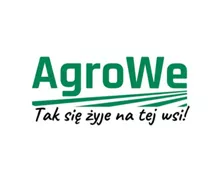General information
RDP Priority
- P2. Competitiveness
RDP Focus Area
- 2A: Farm’s performance, restructuring & modernisation
RDP Measure
- M04: Investments in physical assets
Beneficiary type
- Farmer / land manager
Summary
Łukasz Czech’s 60 hectare pig farm could access CAP funds to support the construction of a new livestock barn that improves breeding conditions, increases production efficiency and contributes to environmental protection through effective animal waste management. The new barn included a deep litter system, automated feeding systems, ventilation and lighting systems that ensure optimal living conditions for the animals.
Results
- Animal welfare and productivity have improved thanks to the new barn’s well-ventilated and hygienic conditions.
- The manure that is now collected is used as organic fertiliser on the farm’s field crops, which has reduced production costs and greenhouse gas emissions as well as limiting groundwater pollution.
- The production process has become less labour intensive due to the absence of straw bedding and manure removal.

Promoter
Łukasz Czech
Funding
- Total budget: 650 000 (EUR)
- RDP contribution: 317 000 (EUR)
- Private/own: 333 000 (EUR)
Resources
Documents
Links
Context
Łukasz Czech’s farm is in the village of Królewski Dwór, near Parczew in the Lublin Voivodeship. The farm covers an area of 60 hectares and its primary activities are pig farming and crop growing (winter wheat, winter rapeseed and spring barley).
Łukasz holds degrees in agriculture from the Warsaw University of Life Sciences and finance, accounting and e-business from the Warsaw School of Economics. He is also an entrepreneur, running an advisory business specialising in innovative agriculture.
Due to environmental protection requirements and the need to improve pig breeding conditions, Łukasz decided to implement a farm modernisation project to enable him to invest in constructing a new pig barn.
Objectives
The main aim of the project was to build a new barn with a deep litter system. This would enable increased production through better animal welfare and a reduction in nitrogen fertilisation costs, thus improving the farm’s overall efficiency.
Activities
Project activities included:
- Constructing a new pig barn with a deep litter system, a ventilation system and a lighting system, which ensures optimal conditions for the animals.
- Installing automatic drinking and feeding systems for the animals.
- Installing pen fences.
- Developing a plan for managing animal waste from the barn and using it elsewhere on the farm as a natural fertiliser.
Main results
- The project has improved welfare conditions for the pigs, with the new barn providing adequate thermal comfort and hygienic conditions for the animals.
- The farm can now obtain natural organic fertilisers for its field crops, which leads to reduced production costs.
- The investment has enabled actions that lessen the impact of animal husbandry on the environment by reducing greenhouse gas emissions and groundwater pollution.
- The farm now breeds more animals at reduced production costs and with a less labour-intensive approach, as straw bedding and manure removal are no longer significant tasks. Additionally, the automatic feeding system significantly reduces the time spent on animal feeding and helps to cut costs.
Key lessons
- This investment project was necessary to improve the production conditions on the pig farm and meet the required environmental standards. From the farmer’s perspective, the most interesting aspect was implementing a system for managing, storing and utilising manure as fertiliser.
- Taking a broader view, as pig breeding in Europe slowly declines as higher standards are set and costs rise, farmers need the sort of support that this project demonstrates. It helps address the question of food production and the intersecting concerns of environmental and social change in rural areas.
